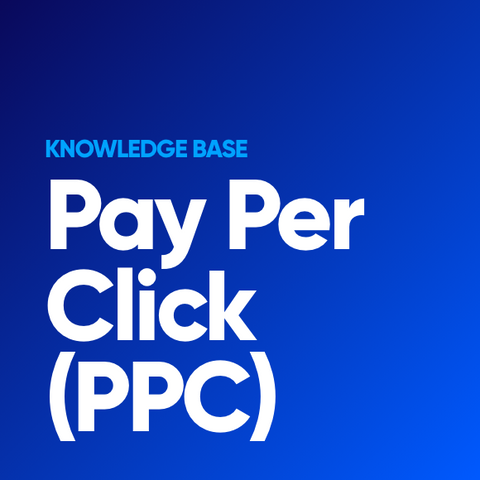The Power of Pay-Per-Click (PPC): A Deep Dive into the Dynamic Advertising Model
In digital marketing, a dynamic advertising model has revolutionized how businesses promote their products and services—Pay-Per-Click (PPC). PPC isn't just an advertising model; it's a dynamic strategy that enables advertisers to reach their target audience while paying only for actual clicks. In this comprehensive exploration, we'll delve deep into the world of PPC, uncover its significance, explore various strategies, and celebrate its pivotal role in digital marketing.
Unveiling the Essence of PPC
At its core, PPC is a dynamic digital advertising model in which advertisers pay a fee each time one of their ads is clicked. The essence of PPC lies in its ability to deliver targeted and cost-effective advertising that only charges advertisers when users engage with their content.
Why is PPC so important?
The beauty of PPC lies in its ability to provide dynamic, measurable, and immediate results. Advertisers can reach a vast audience while maintaining dynamic control over their ad spend and tracking the effectiveness of their campaigns in real time.
Decoding the Significance
The significance of PPC in the realm of digital marketing cannot be overstated:
-
Targeted Advertising: PPC is the dynamic champion of targeted advertising, allowing businesses to reach their desired audience precisely.
-
Measurable Results: It leads to dynamic and measurable results, as advertisers can track the performance of their campaigns in real time, gaining insights into clicks, conversions, and ROI.
-
Cost Control: PPC offers dynamic cost control, as advertisers can set daily or monthly budgets, ensuring they don't exceed their allocated ad spend.
-
Fast Results: It is dynamic in delivering fast results, allowing businesses to drive immediate website traffic and see results almost instantaneously.
-
Flexible Campaigns: PPC provides the dynamic flexibility to create, pause, and modify campaigns quickly, adapting to changing circumstances or objectives.
Strategies for Effective PPC
To fully harness the power of PPC, consider these high-impact strategies:
-
Keyword Research: Conduct dynamic keyword research to identify your ads' most relevant and effective keywords.
-
Compelling Ad Copy: Create dynamic ad copy that is concise and compelling, showcasing the value of your offering.
-
A/B Testing: Continuously conduct A/B testing to optimize dynamic elements of your ads, such as headlines, ad copy, and call-to-action buttons.
-
Landing Page Optimization: Ensure your landing pages are dynamically optimized to align with the ad's messaging and drive conversions.
-
Dynamic Bidding Strategies: Implement dynamic bidding strategies, such as manual CPC, automated bidding, or target ROAS, to maximize ROI.
Celebrating the Impact of PPC
The impact of PPC in the realm of digital marketing is nothing short of transformational:
-
Targeted Reach: PPC offers dynamic and targeted reach, ensuring that the right audience sees your ads.
-
Measurable Success: It leads to dynamic and measurable success, allowing you to track the performance of your campaigns and optimize them for the best results.
-
Cost-Efficient Advertising: PPC is a dynamic tool for cost-efficient advertising, as you only pay when a user takes action, such as clicking on your ad.
-
Immediate Traffic: It results in dynamic and immediate traffic to your website, which can be particularly advantageous for businesses looking to generate quick results.
-
Flexible Campaigns: PPC provides dynamic flexibility to adapt campaigns quickly to changing objectives, market conditions, or audience dynamics.
PPC Across Diverse Industries
PPC is a versatile advertising model applicable to a wide array of industries:
-
E-commerce: Online retailers use PPC to dynamically promote their products and drive sales, targeting specific products or categories.
-
B2B Services: B2B companies employ PPC to reach decision-makers and generate leads for software, consulting, or outsourcing services.
-
Healthcare: Healthcare providers use PPC to dynamically promote services such as telemedicine, patient appointments, or health awareness campaigns.
-
Finance: In the financial sector, companies use PPC to generate leads for financial products, investment opportunities, or insurance services.
-
Education: Educational institutions leverage PPC to dynamically attract students, promote courses, and drive applications for admissions.
The Future of PPC
As the ever-evolving world of digital marketing continues to evolve, the future of PPC is filled with exciting possibilities:
-
Dynamic Automation: PPC will embrace dynamic automation, with more advanced AI and machine learning capabilities to optimize campaigns and bids in real time.
-
Voice Search Integration: The future will see dynamic integration with voice search, enabling PPC ads to target users making voice queries.
-
Video Advertising: PPC will expand into dynamic video advertising, allowing businesses to create and promote video content on platforms like YouTube.
Final Thoughts: The Dynamic Advertising Model
In the ever-evolving world of digital marketing, PPC is the dynamic advertising model. It empowers businesses to precisely reach their target audience, achieve measurable results, and maintain dynamic control over ad spend. By embracing the dynamic power of PPC, you can ensure that your advertising campaigns are not just about impressions but about driving real engagement, clicks, and conversions. PPC isn't just an advertising model; it's the dynamic bridge between your offerings and your target audience.

Pay-Per-Click (PPC)





